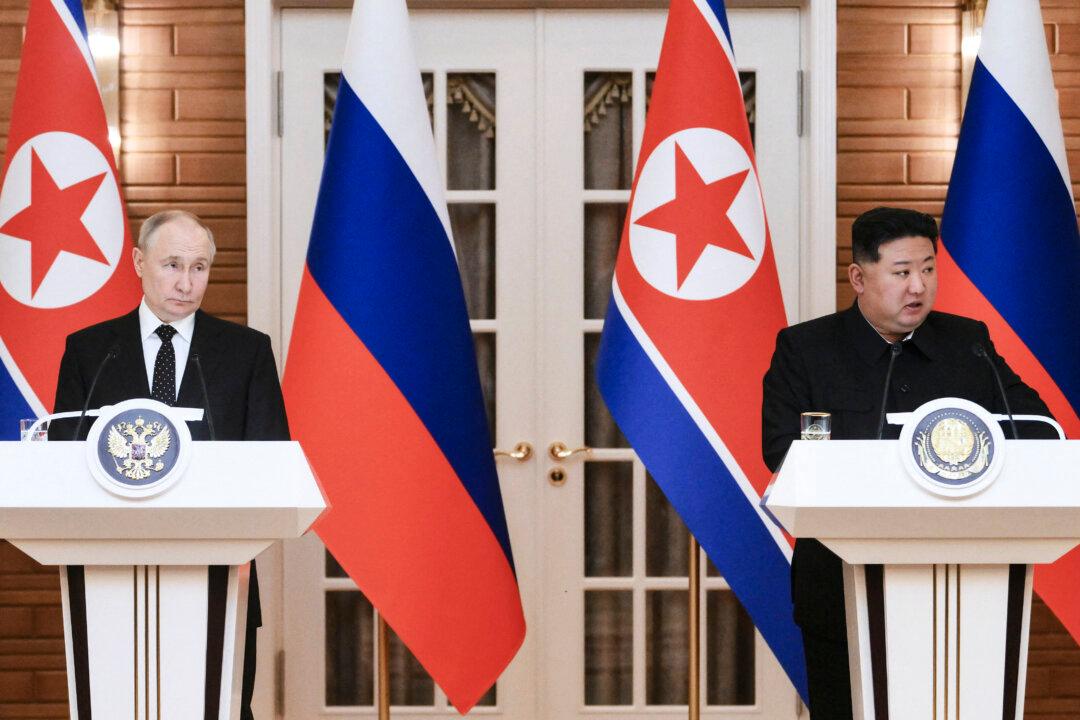The United States, South Korea, and Japan on June 23 condemned “in the strongest possible terms” the military cooperation between North Korea and Russia after the leaders of the two countries signed a deal last week.
Senior officials of the three allied nations held a phone conversation on June 23 to discuss the comprehensive strategic agreement signed by Russian leader Vladimir Putin and North Korean leader Kim Jong Un.





